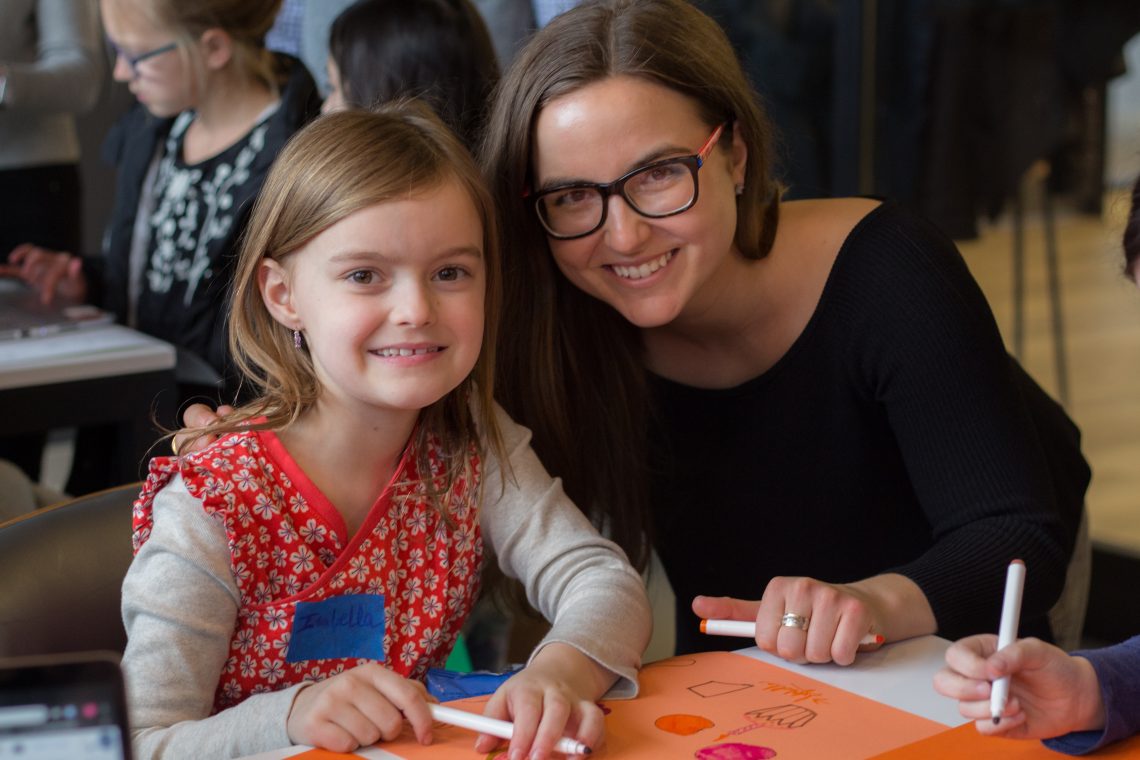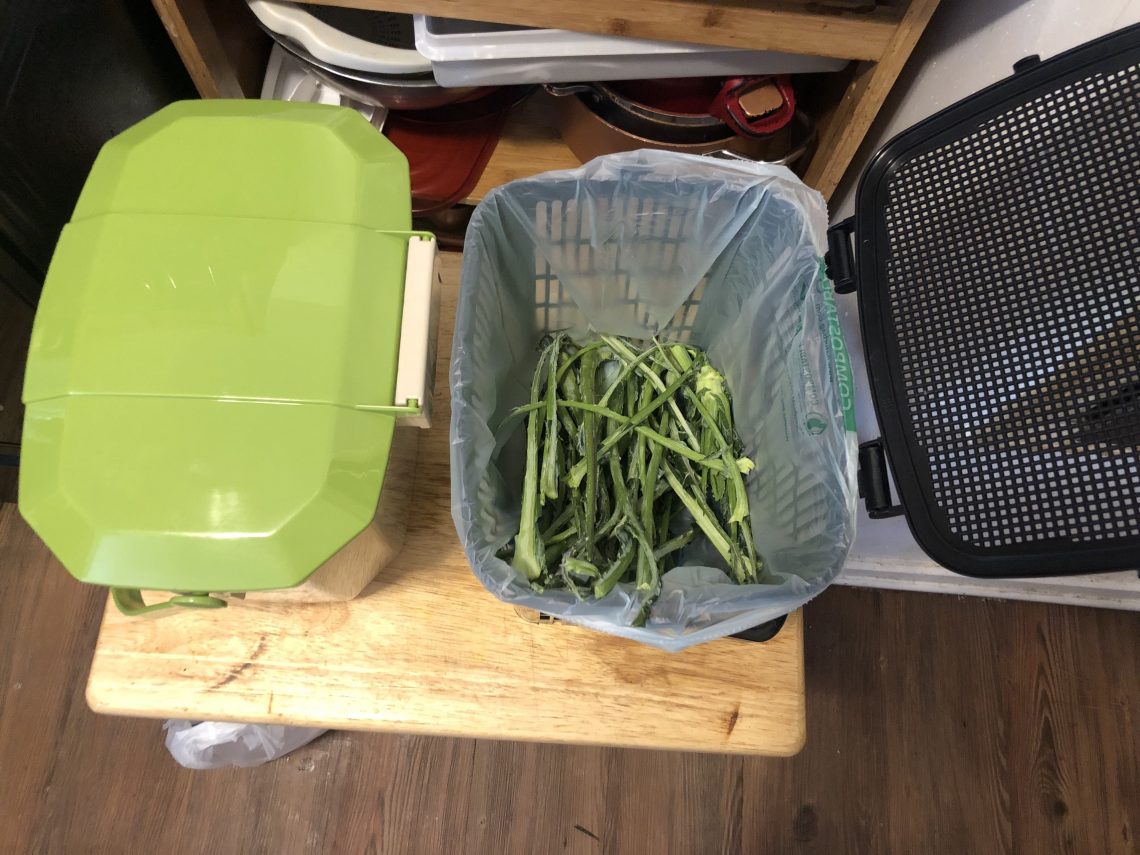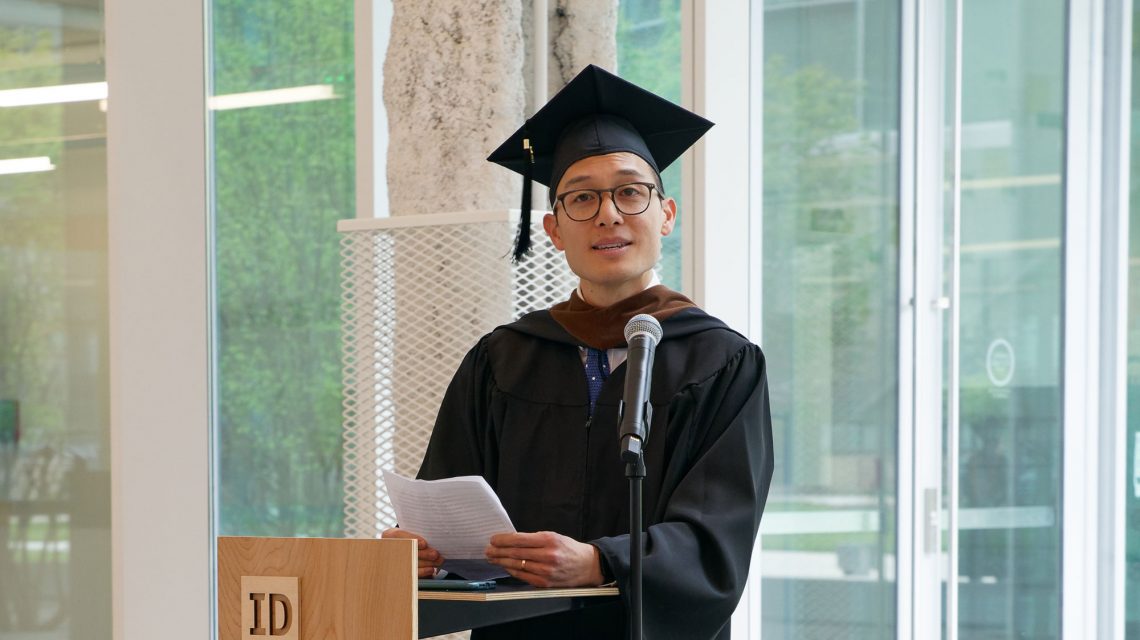Lizzy Engele: Bringing More Young Women into STEM
By Andrew Connor
November 1, 2019

“What bothers you?” That was the question posed to Lizzy Engele (MDes 2021) during a class while pursuing her bachelor’s degree in marketing and supply chain management at the University of Illinois at Urbana-Champaign in 2014. It’s also the question that prompted Engele, along with her classmate Julia Haried, to start MakerGirl, a nonprofit organization that encourages young girls to pursue education and involvement in STEM fields.
“I want more women to have a ‘maker’ mentality, meaning they can make any of their ideas come to life,” says Engele. “Research shows that girls want to pursue fields where they can be creative and make an impact, and girls unfortunately don’t perceive STEM fields as fitting those categories.”
Engele, now a master’s student at ID, wants MakerGirl to teach this maker mentality. The organization does this by taking participants from design thinking, to CAD software, to 3D printing their customized item to show girls that being creative and technical are not mutually exclusive—they are a powerful combination. Engele points out that research indicates that gender stereotypes about jobs can start affecting girls as young as 6 years old, so MakerGirl seeks to provide these experiences for girls between the ages of 7 and 10 to counteract those stereotypes.
“I was thinking about what could show girls that they can be creative, technical, and can make an impact, and I thought 3D printing combined all those,” says Engele. “It was cutting-edge technology at the time five years ago when we started, and girls can go from design thinking to having an item in the palm of their hands at the end of the session. That gives them confidence.”
MakerGirl brings its 3D printing to girls either via after-school programs at universities, or through #MakerGirlGoesMobile, a 3D printing pop-up truck that takes the MakerGirl experience to girls in rural and under-served areas with limited access to tech-based learning experiences. For Engele, that’s especially important.
“I’m from Nashville, Illinois, which is a very small town in southern Illinois, so going to college was really the first time I was exposed to any diversity of opportunities,” says Engele. “We must allow for innovative learning opportunities, especially in rural areas that receive less than 5 percent of philanthropic funding.”
Since its inception in 2014, MakerGirl has educated over 4,000 girls in 22 states through its university academies and it #MakerGirlGoesMobile tours. Academies are currently located at Illinois, Northwestern University, University of Texas at Austin, University of Michigan, and Cambridge College. And, in July 2019, MakerGirl hired a new full-time executive director, Mary Hadley, who is working to ensure the nonprofit educates 10,000 girls by 2023.
In considering where MakerGirl can go next, Engele believes that it’s important to be able to extend the message of MakerGirl beyond the after-school sessions. Ideally, the message needs to be emphasized and strengthened over time, she says. That entails finding ways to communicate with parents about the importance of reinforcing a growth mindset with their daughters to battle misconceptions about women and girls in STEM fields. This, Engele believes, is where ID comes in.
Having worked alongside dozens of girls at sessions, Engele has witnessed firsthand the power that these making sessions have had on the young girls to whom MakerGirl caters. She sums it up in one of her favorite stories.
“Addy started attending MakerGirl at the age of 6 and attended most sessions thereafter. Her dad was dropping her off at school one day and he said, ‘Bye, baby girl, love you.’ She said, ‘Dad I’m not your baby girl, I’m a MakerGirl.’ That’s a cute story, but also really powerful,” Engele says. “It shows that is how she views herself, somebody who is a future builder of technology, capable of making her ideas come to life.”

